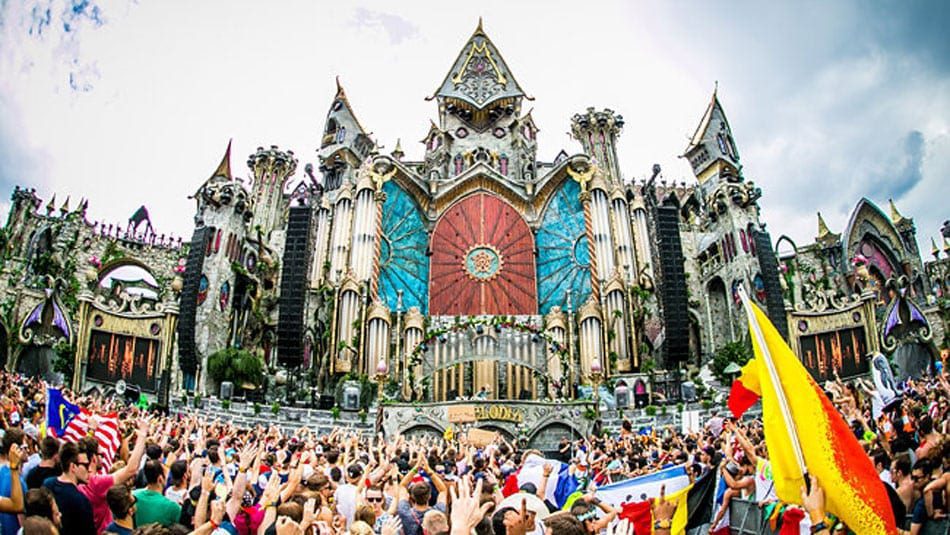As an event organizer, you’re bound to get bombarded by a lot of different advice.
“Focus on booking the best talent!”
“Spend more $$$ on digital marketing!”
“You HAVE to have an event app!”
It gets hard to tell what’s actually useful, what falls under generic best practice, what’s just trendy, and what’s downright misinformed.
You already know that not all advice is created equal, that not all benchmarks are universal. How do you figure out what applies to you? One of the best ways to cut through the noise and develop a sound, data-driven event strategy is to start by understanding your budget. This includes knowing things like:
- How your budget stacks up against others?
- How your event category impacts your budget?
- How your geographic region affects budgets?
- Where spend is trending, and should you follow suit?
Below, we look at event budget breakdowns, how they are changing across different event types and locations, and where spend is being allocated. At the end of this post, you will understand how to categorize your own event, and whether certain benchmarks actually apply to your specific situation.
Budget Breakdowns: The Three Types
Let’s start by applying some rough categories to different event budgets, as this will help us later. Based on event organizer data gathered by Intellitix, we can group event budgets into three broad categories:
- The Top 14% — event budget of over $10M+
- The Middle 38% — event budget between $1M and $10M
The Bottom 45% — event budget under $1,000,000.
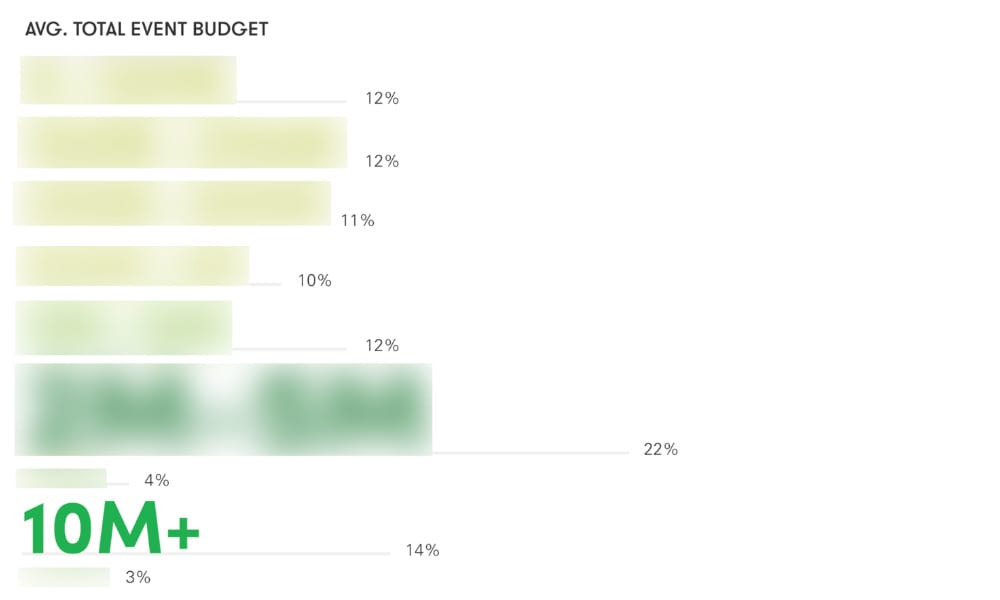
(Want full access? Get the full report for FREE here.)
You can break the data down in multiple ways, but for now you only need to consider the three categories.
Let’s take a well-known Top 14%, with a budget of a lot more than $10M as an example. Here’s what some of Burning Man’s $35.8 million dollar budget distribution looked like in 2015:
- $9.5 million on payroll — 27%
- $4 million on contractors — 11%
- $3.8 million on permit and fees — 11%
- $2.9 million heavy equipment and rental — 8%
- $2.1 million on payroll taxes and benefits — 6%
- $2 million on building, supplies, office expenses — 6%
If you fall within The Bottom 45% and are hosting a relatively small, one-day event with a budget of $100K, you probably do not need to spend $44,000 on staff alone. That’s almost half of your entire budget. Yet that was the proportion spent at Burning Man (counting payroll, contractors, and associated taxes and benefits).
Prioritizing budget for famous headliners makes sense most of the time if your event is big, but it still depends on the total size and budget of your event. Well-known artists like Lady Gaga or Radiohead can command multi-million dollar contracts, and event organizers will happily pay them. But those expensive acts also end up paying for themselves, because your line-up announcement drives by far the most ticket sales.
But what if your event is too small to afford a world-famous artist? You might be better off allocating more budget to advertising. Then, you can carefully target and promote your less expensive line-up to a niche audience to still try to maximize ticket sales.
In any scenario, if you’re looking at typical breakdowns and advice, you should first understand where your event fits in the larger scheme of things.
Geography and Event Types: How They Impact Growth
Event Types
Here’s how many event organizers are seeing budget increases, based on the event type:
- Music festival organizers: more than 50% report a budget increase.
- Sports event organizers: around 13% report bigger budgets.
- Food, wine, beer event organizers: similarly, around 13% report bigger budgets.
- Fixed venue/facility event organizers report no changes.
As you see, it’s a great time to be in the music festival business — chances are good you’ll experience budget growth. And if you’re facing a stagnant budget while hosting a sports or food and beverage event, don’t worry yet! It looks like your peers and competitors are not experiencing too much budget growth either.
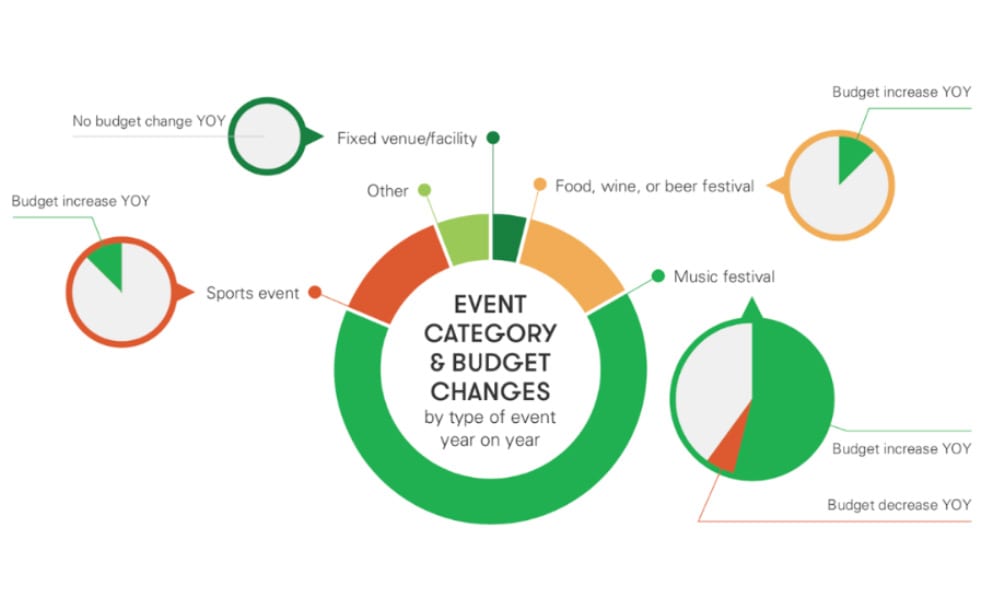
(Source: Intellitix State of Live Report)
In addition to event categories, you should also keep in mind where you plan to host it. While there’s good evidence for music festival growth globally, not all regions are created equal.
Are you in North America? You’re in luck because 57% of all North American event organizers report budget growth. Those hosting music festivals specifically are doing even better — as much as 68% report growth.
Comparing this to Europe, we get a slightly different picture. Almost 2/3rds of European music festivals are reporting either declining or stagnant budgets.
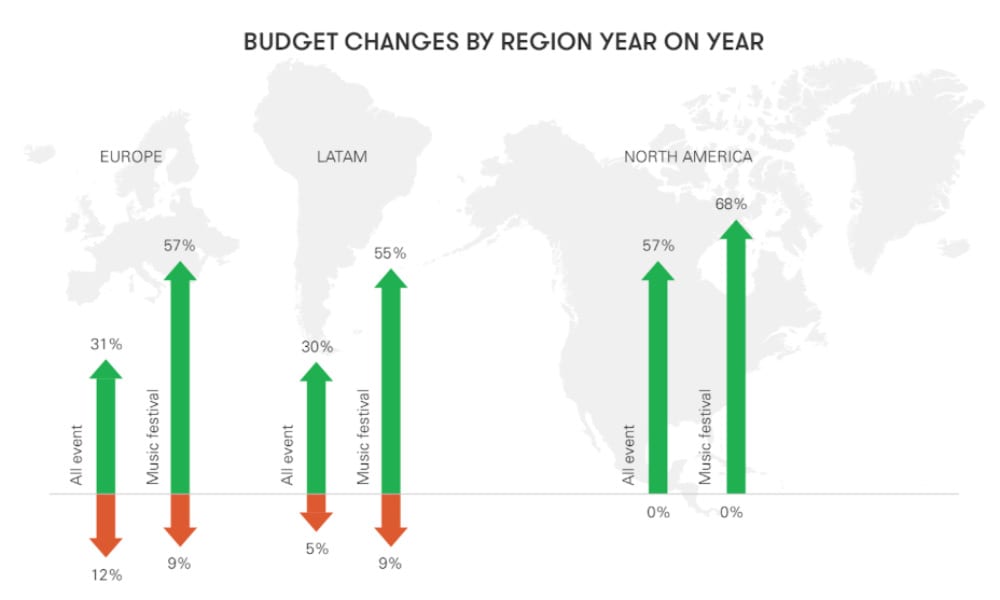
(Source: Intellitix State of Live Report)
So, while North America is experiencing growth across the board, in Europe we see a much sharper difference between decline and growth.
What does this mean for you? North American events will have a lot more room for error and experimentation than their European counterparts, who face a tougher competitive landscape, and would be wise to stick to proven strategies.
How The Winners Spend Their Event Budgets
If you’ve seen increases in next year’s budget, it’s likely that you chose winning strategies for your last event. We asked organizers who saw increased event budgets where they will allocate spend in the future. Here’s what they’re focusing on:
- 40% on Digital Marketing
- 23% on Sponsorships
- 21% on Cashless Payments
- 10% on New Pricing Structures/Models
- 6% on PR
The above data should come as no surprise. Digital marketing (and social media marketing especially) tops the future focus because it consistently proves to drive some of the highest ROI for event organizers.
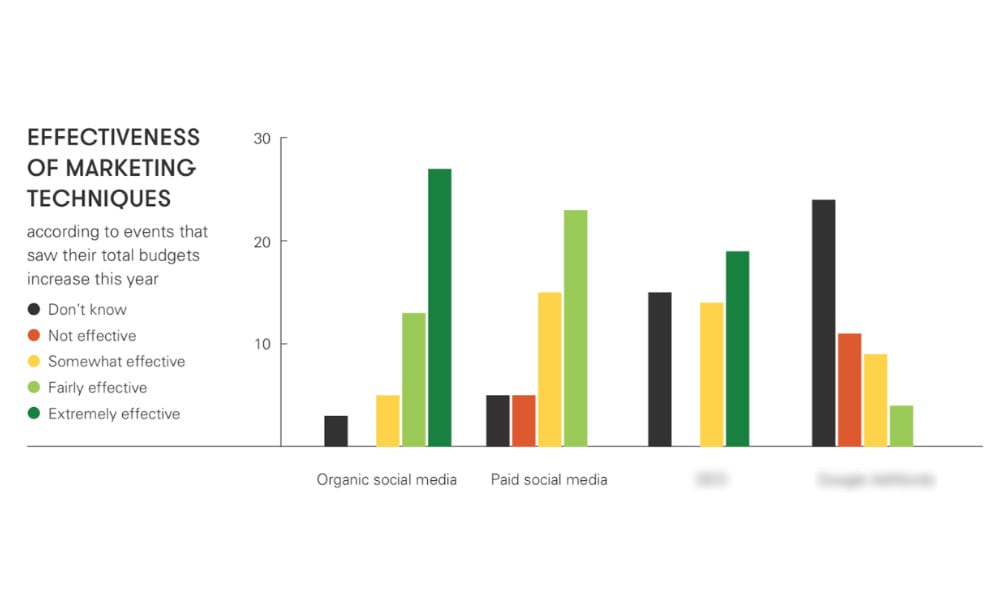
(Source: Intellitix State of Live Report)
Meanwhile, a focus on sponsorship opportunities and implementing cashless payments ties for a close second. Sponsorships, because they bring in the second-most revenue after ticket sales. And cashless payments, because they help increase revenues by up to 87%.
Indeed, if you’re not yet using RFID technology for cashless payments, putting it in place gives you a competitive edge — only 38% of events are currently reaping those benefits.
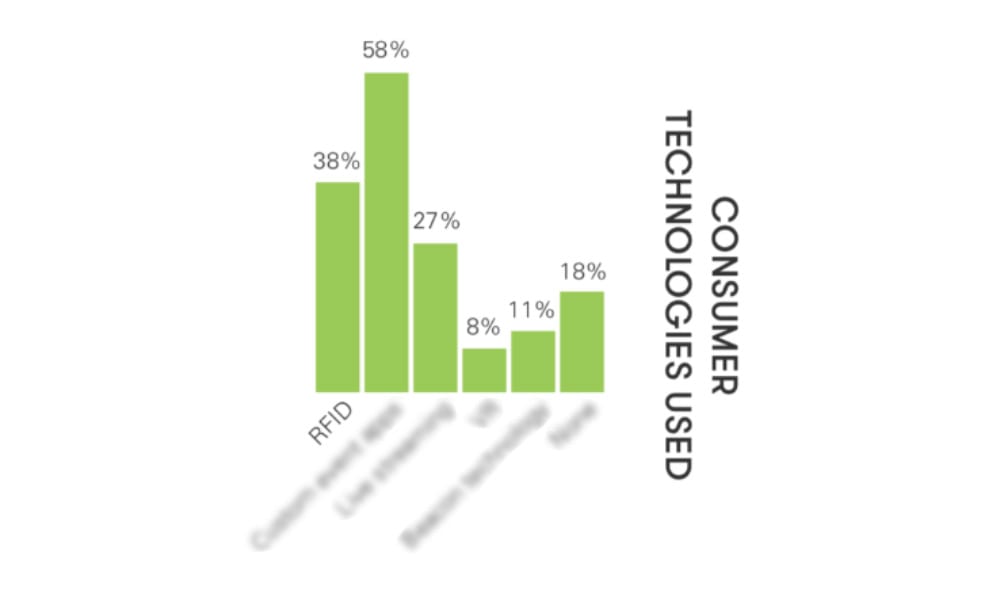
How To Allocate Budget For Your Next Event
If you’re struggling to decide what to focus on next, following the (successful) herd may actually be a pretty sound strategy. Depending on your event type, specific niche data or benchmarks may simply be impossible to find. Start by looking at what successful events prioritize, and then adjust based on your specific situation.
Running a North American music festival with a $10M+ budget? You will definitely want to focus on securing the best headliners before you do anything else. They will drive the vast majority of your ticket revenue.
Planning a European beer fest with one million dollars to spend? You shouldn’t steer too far away from proven channels like social media, and should also consider investing in cashless payments to maximize revenue from food and drink sales.
Whatever budget recommendations and datasets you come across in the future, remember to keep them in context. And for more such context, subscribe to Intellitix and get our latest data for FREE here.

